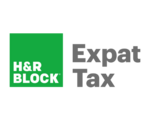Capital gains, profits from a company’s branch, dividends brought in to Hong Kong or dividends paid by Hong Kong companies are not taxed. There is also no sales tax in Hong Kong, although stamp duty is paid on certain documents like share transfers, leases and the buying and selling of property. Loan payments and self-education expenses are also not taxed.
Income or salary is taxed when in excess of $30,000 a month. The maximum tax you will pay on your salary in Hong Kong is 16% of your overall income, including all allowances and bonuses.
The fiscal year for tax assessment in Hong Kong is from April 1 to March 31. At the end of the fiscal year you will receive a form to fill in details about your annual income – your salary if you are an employee or your profits if you have a business. If you’re married, you and your spouse are allowed to apply for joint assessment which may work out more favourable than separate assessments.
Employers are expected to notify the Inland Revenue of all payments to full-time or part-time employees and for freelance work or projects.
The assessment form is simple enough to fill in yourself (which might come as a surprise if you come from a country with complicated tax rules that are hardly even understood by tax consultants). You will receive an assessment of what you have to pay in the autumn, after which you are taxed in two instalments, the first in January and the second in April.


